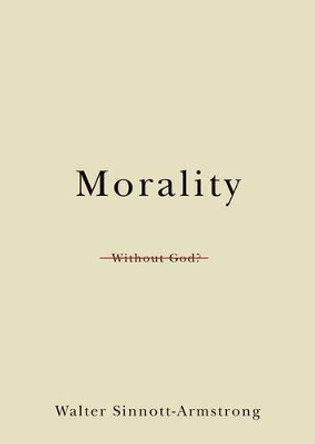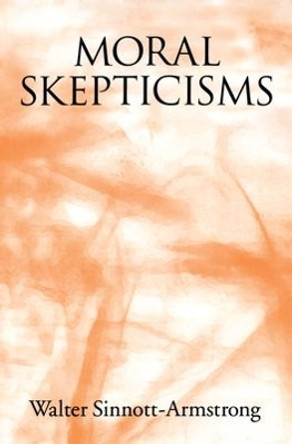Some argue that atheism must be false, since without God, no values are possible, and thus "everything is permitted." Walter Sinnott-Armstrong argues that God is not only not essential to morality, but that our moral behavior should be utterly independent of religion. He attacks several core ideas: that atheists are inherently immoral people; that any society will sink into chaos if it is becomes too secular; that without morality, we have no reason to be moral; that absolute moral standards require the existence of God; and that without religion, we simply couldn't know what is wrong and what is right. Sinnott-Armstrong brings to bear convincing examples and data, as well as a lucid, elegant, and easy to understand writing style. This book should fit well with the debates raging over issues like evolution and intelligent design, atheism, and religion and public life as an example of a pithy, tightly-constructed argument on an issue of great social importance.
About the AuthorWalter Sinnott-Armstrong is Professor of Philosophy and Hardy Professor of Legal Studies at Dartmouth College. He is co-author of God? A Debate between a Christian and an Atheist as well as Understanding Arguments, author of Moral Skepticisms, and editor of Pyrrhonian Skepticism, Moral Psychology, and the OUP series, Philosophy in Action.
Book InformationISBN 9780195337631
Author Walter Sinnott-ArmstrongFormat Hardback
Page Count 192
Imprint Oxford University Press IncPublisher Oxford University Press Inc
Dimensions(mm) 130mm * 180mm * 20mm







